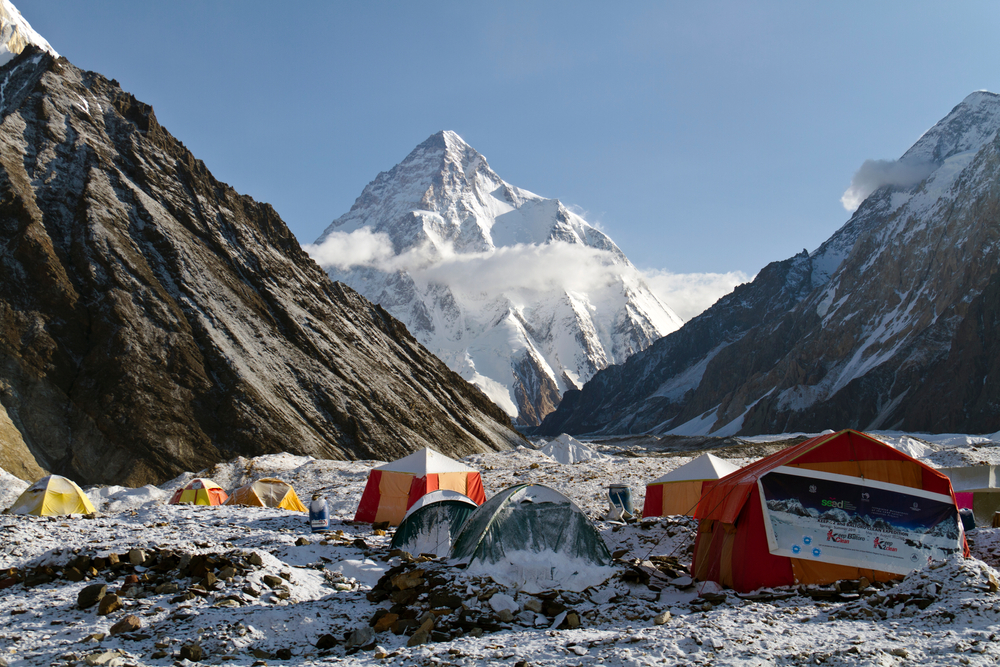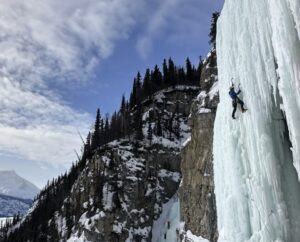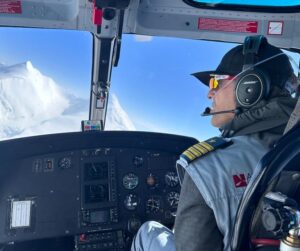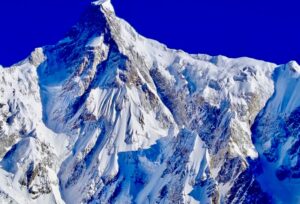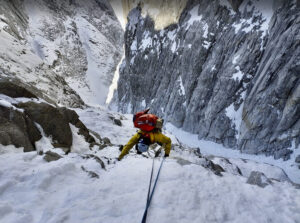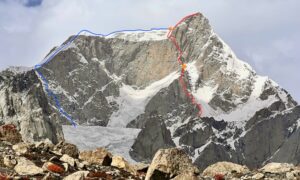The truce agreed last Saturday between India and Pakistan has eased the tension somewhat. Flights to Pakistan are operating again, and politicians may soon expand the ceasefire into border territories. This optimistic turn has provoked some to keep their climbing plans. Others have postponed or changed their goals.
“Things are nowhere close to normal yet,” the BBC reported today.
The gunfire has ceased, but the situation remains tense. Borders and airspace between the two countries are closed. Diplomats have been expelled, visas rejected, and trade halted. However, none of these measures affect foreigners. Pakistan, in particular, has remained open to tourism, and the flights resumed this week.
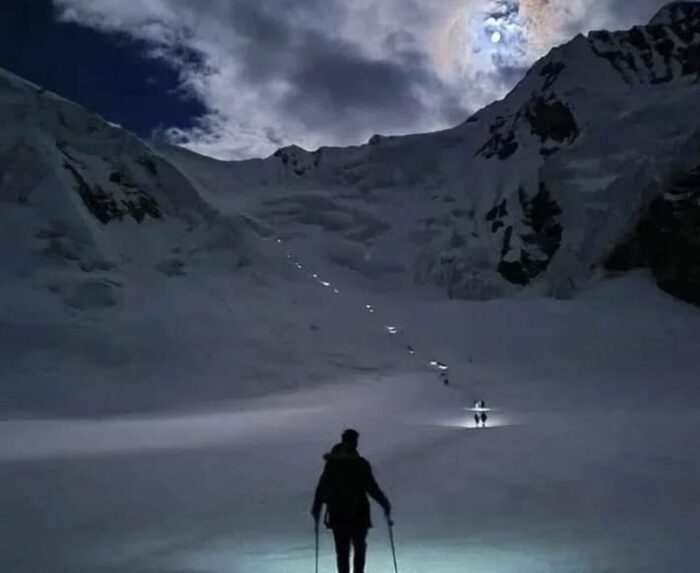
Trekkers head up the Gondogoro La in the Karakoram. Photo: Humza
To go or not to go
Among the affected teams, the U.S. climbers planning a new route on Ultar Shar had their flight canceled last week. As airlines resumed operations in Pakistan, they hurried to board a plane to Islamabad. They have since arrived and are now on their way to the Karakoram.
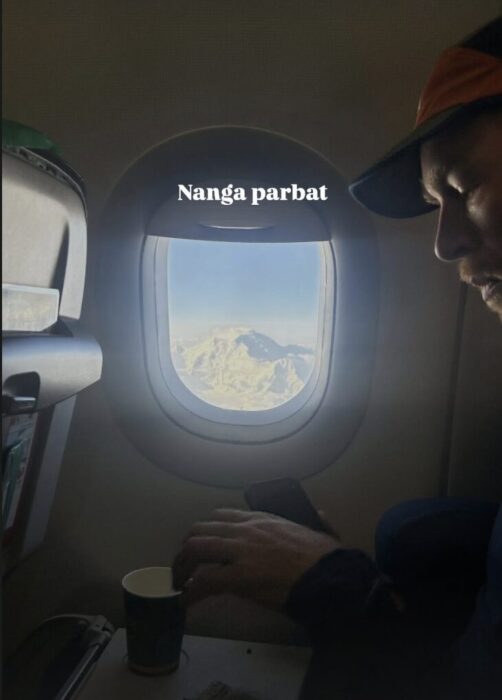
En route to Pakistan, Seba Pelleti snaps a pic of Nanga Parbat. Photo: Seba Pelleti/Instagram
Ali Saltoro of Alpine Adventure Guides said that in addition to the Ultar Shar team, there is a group of European skiers in the Snow Lake area of Biafo (Karakoram), and a second team in Shimshal Pass.
“So far, 53 expeditions have applied for permits to climb peaks in the Gigit-Baltistan region,” Saltoro said.
The 8,000’ers
Most outfitters started organizing trips to Pakistan’s 8,000m giants at the beginning of this year. However, recent events prompted them to cancel their offerings.
For Garret Madison of Madison Mountaineering in the U.S., his country’s mediation in the conflict suggests a stable truce. Madison Mountaineering still has expeditions to K2 and Broad Peak.
“Now, everything is fine,” he told ExplorersWeb, “and Pakistan is open to foreigners for climbing and tourism this summer. I don’t foresee any conflict going forward.”
On the other hand, Furtenback Adventures has opted to postpone.
“We will operate no Pakistan expeditions this year…because of safety concerns and travel warnings,” Lukas Furtenbach told ExplorersWeb from Everest Base Camp. “Everything is postponed to 2026.”
Alex Blasco, a mountain guide from Andorra, just posted on Instagram that he has put off an expedition to Gesot Peak until 2026, also for safety reasons.
Local outfitters’ view
For local operators and mountain communities that survive almost exclusively from tourism, losing the 2025 season would be catastrophic.
These outfitters are trying to convey optimism. The Pakistan Association of Tour Operators released a document saying that “the fog of war that was looming on the horizon has settled.” Everything, they aver, is peaceful and safe for tourists. We have reproduced the document at the end of this story.
They blame the media and social media for creating uncertainty, although over a hundred people have died in the conflict so far.
Asghar Ali Porik of Jasmine Tours spoke about it with ExplorersWeb.
“Pakistan has fought many wars with India,” he said, about the 70-year conflict. Days before the truce, Ali Porik noted that Pakistan is always under pressure from the U.S., the EU, and the Middle Eastern countries not to escalate.
“Tourists are asking me [what to do],” Ali Porik said. “For those planning to visit Pakistan in June, I suggest they wait until May 20 to make a final decision.”
The uncertainty particularly affects climbers bound for Nanga Parbat, which is typically climbed in June.
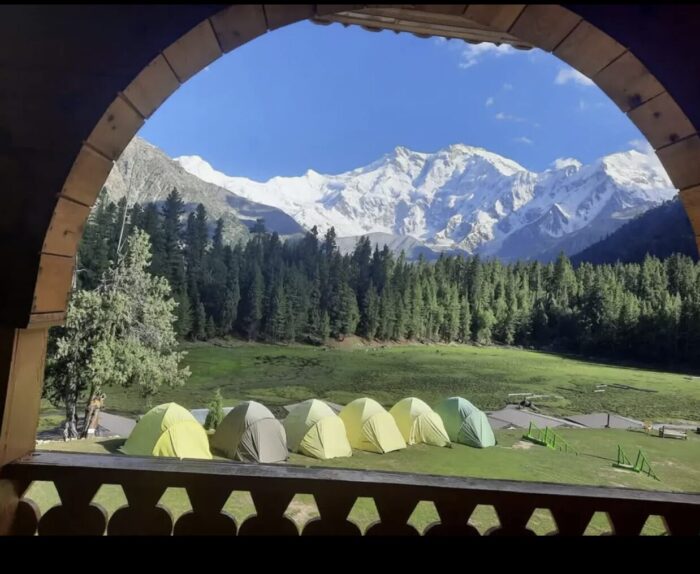
Tents of a trekking group near Nanga Parbat, background. Photo: Alpine Adventure Guides
Pakistani climber and blogger Karim Shah Nizari says Pakistan is back to normal and welcoming visitors.
“The northern mountains are now safe for climbing and trekking,” he said.
However, he admits that some groups canceled their trips to Pakistan last week, when the situation was at its worst.
Pakistani authorities are trying to promote the return of mountain tourism. They have opened new trekking routes and climbing areas, and lessened the threatened increase in climbing fees. That potential increase prompted some teams to cancel even before hostilities with India began.
Agreement ahead on Fees
Fees for trekking and climbing in Pakistan were to triple in price this year. Local operators tried to stop the measure, even turning to the courts. However, current events have forced an urgent discussion among stakeholders over the last few days. A final word is due within days, but it seems that stakeholders and authorities will compromise on a moderate increase. This will be far less than the original proposal, which suggested, for example, $5,000 per person for K2.
Unofficial estimates have lowered that to $3,500 per person, and $2,500 for the other 8,000’ers. Below, the original proposal’s price increases:
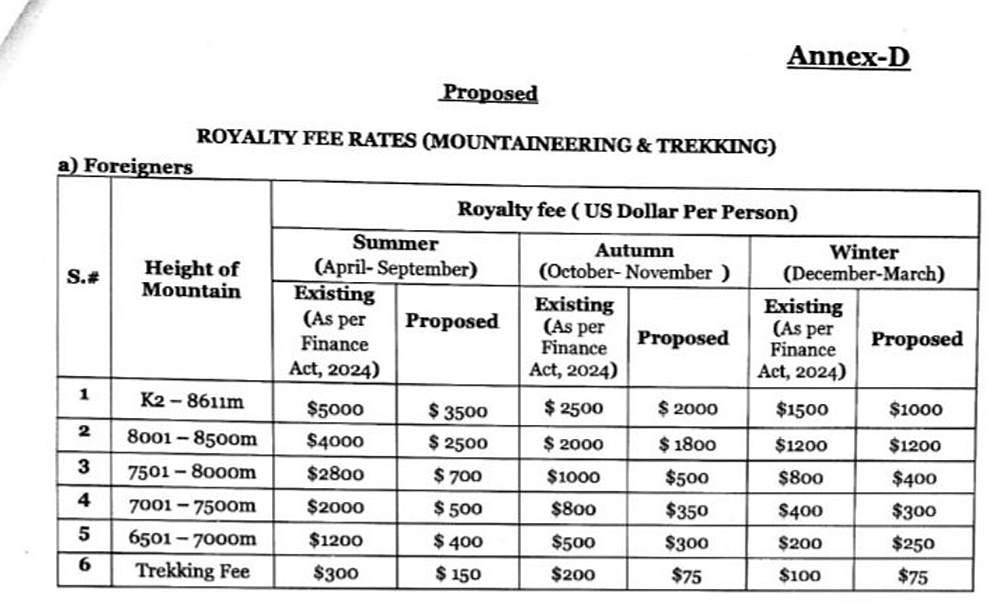
Proposed 2025 fees. It seems that a compromise has been reached, and actual fees will be higher than last year but much less than the above. Photo: various Pakistani operators
Hindu Kush for free
Authorities have also opened new areas to foreigners and offer others free of charge.
Ali Saltoro pointed to new climbing peaks and trekking routes that have just opened in the Kondus Valley and the Saltoro region.
Pakistan has also reopened the Nelam Valley in Pakistan-administered Kashmir for tourists, Karim Shah Nizari pointed out. The Nelam Valley is very close to the Line of Control (LOC), a high-altitude no-man’s land separating the two sides of Kashmir, one under Pakistani rule and the other belonging to India.
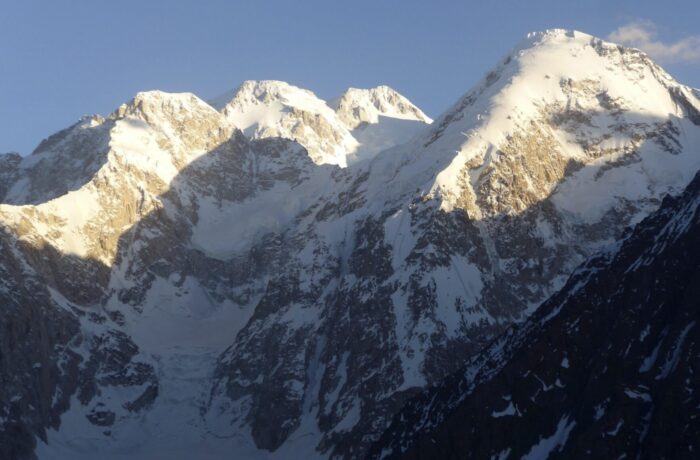
Noshaq Peak, 7,492m. Hindu Kush. Photo: Alpine Adventure Guides
Finally, in the Hindu Kush, the local government of Khyber Pakhtunkhwa has decided to celebrate the 75th anniversary of the first ascent of Tirich Mir by a Norwegian-British team in 1950 by giving free climbing permits for the entire region in 2025-26. Tirish Mir’s permits were also free last year, but the measure now extends to the entire Pakistani Hindu Kush, which contains many impressive mountains above 7,000m.

Pakistan and a map of the Himalaya. Photo: Wikiquote

Press release by the Pakistan Association of Tour Operators.
